The RenCen after GM: What the future could hold for Detroit architectural landmark
Just when Detroit was finding new uses for all the old buildings that were once special and sought-after, but had fallen on hard times and became something of an embarrassment for the city, there is another development puzzle:
What to do with the Renaissance Center.
From the moment General Motors CEO Mary Barra's announced last Monday that the automaker is moving its global headquarters in 2025 to Dan Gilbert's new Hudson's site development, the famous glass-tower complex on the riverfront entered its own midlife crisis.
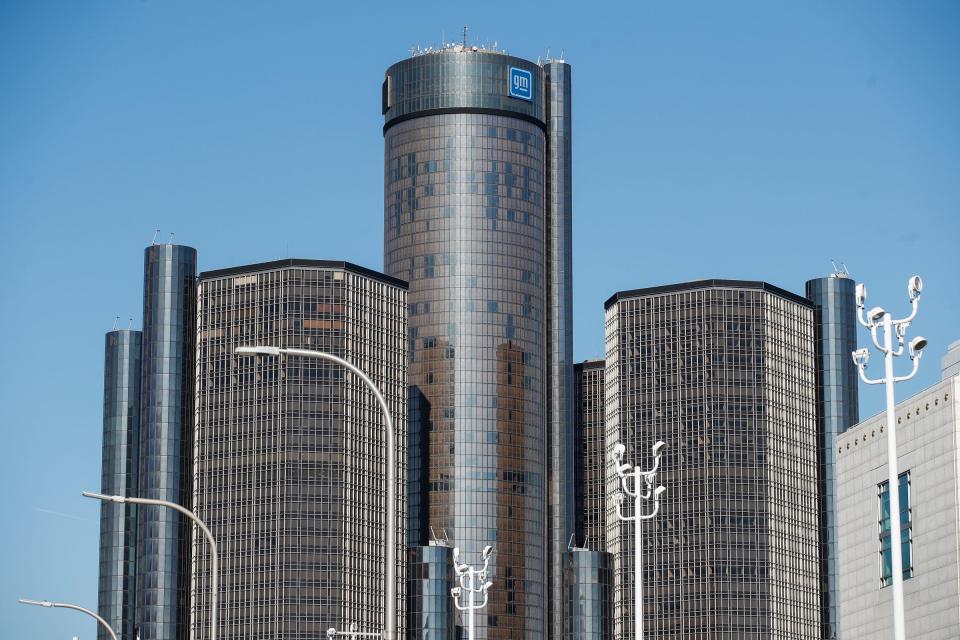
GM won't be abandoning the Renaissance Center — or at least not yet.
The automaker will continue to own five of the seven RenCen towers, and will begin studying possibilities for reinvigorating the 1970s architectural landmark for a new era.
This study will be a collaboration of GM, Gilbert's real estate firm Bedrock, the city of Detroit and Wayne County. Barra suggested that they will be open to all ideas, even radical changes such as converting RenCen office towers to residential use.
"We will work to reimagine the Renaissance Center for its next chapter," she said.
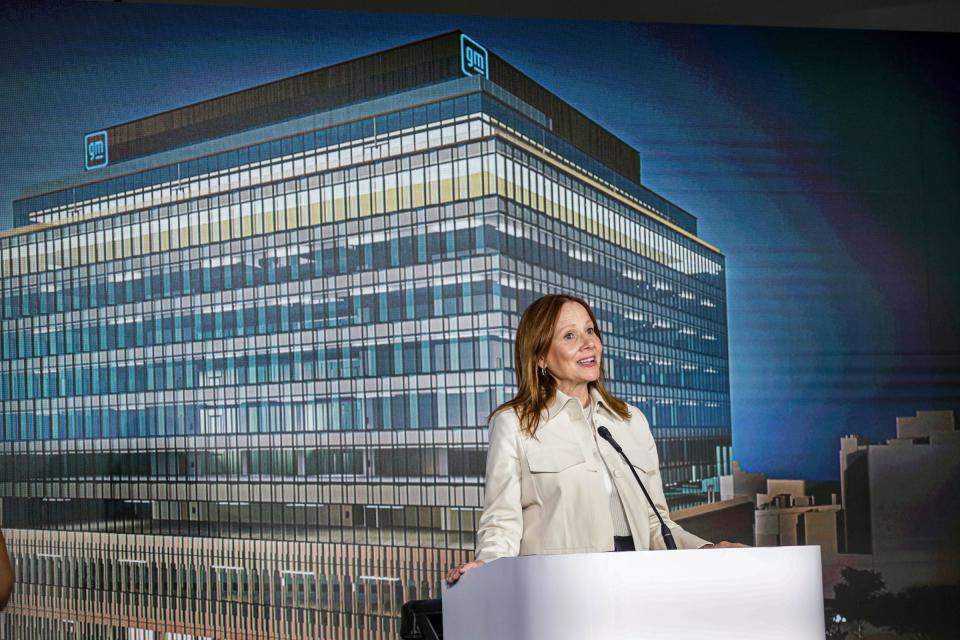
The Free Press spoke with several area architecture, development and real estate experts as to what possibilities they see for the icon that still dominates Detroit's skyline and is recognized around the world.
None of those interviewed wished to see the RenCen torn down, a dramatic idea that gained traction in some quarters of social media during the week as well as letters to the Free Press.
Not only are the towers too symbolic for Detroit to be demolished, they said, but the buildings have significant value, considering how the cost today of building a similar complex would run into the billions.
GM also has put $1 billion of renovations and improvements into the property and the nearby RiverWalk since buying the buildings in 1996, according to Barra. This included removing two large bunker-like concrete berms that had separated the RenCen from downtown.
Demolition would even be an international tragedy, according to one Windsor-based architect, as Canadians across the Detroit River enjoy their unobstructed views of the RenCen and the full downtown Detroit skyline.
"There would be a huge outcry to not let that happen. It’s a tremendous part of the skyline from this side," said Jason Grossi of studio g + G architecture.
Convert office towers to housing, more hotels
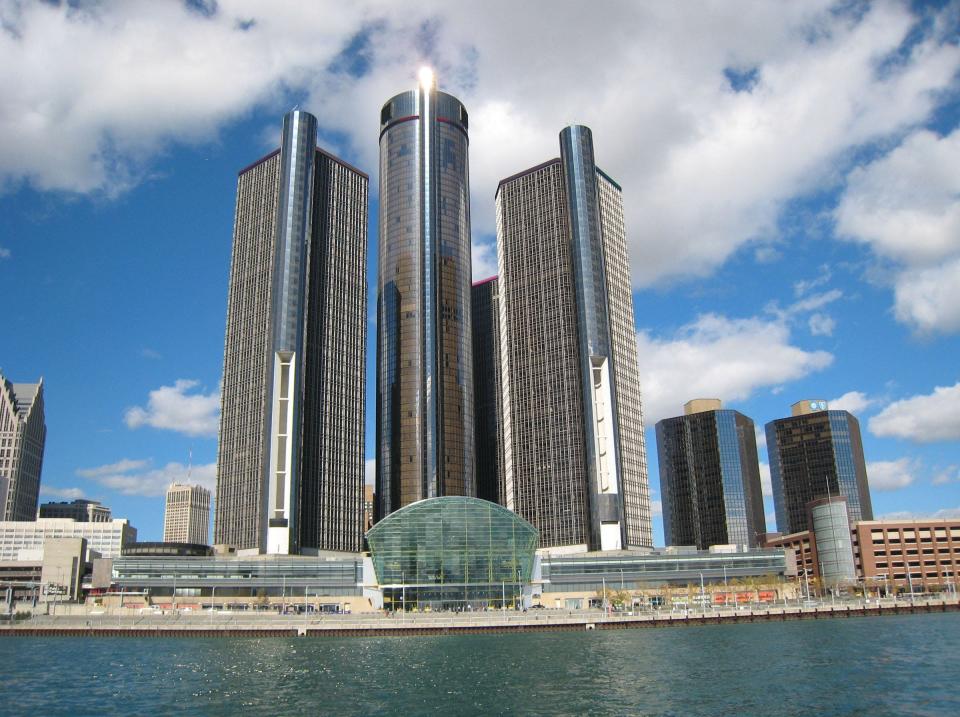
Several of the experts like the idea of transforming a few — perhaps even all — of the RenCen's original four office towers into residential (a fifth tower is a hotel).
One architect sees a great potential for senior housing, considering the location's riverfront views and the RenCen being a self-contained "city within a city," with space in the complex for all sorts of shops, restaurants and markets that could serve the seniors. There is even a fitness center and a shuttered four-screen movie complex that could be reopened.
Some commentators have voiced concern about the feasibility and costs of performing office-to-housing conversions in the towers.
But others say the floorplates within the four original octagonal-shaped office towers, said to measure 18,000 square feet, are indeed sufficient and not too deep to rule out a conversion. Deep floorplates are generally seen as a problem for office-to-housing conversions because they can result in residential units lacking windows.
“You can do it. It’s not impossible," said Michael Poris, cofounder of Birmingham-based firm McIntosh Poris Architects.
The costs for such a conversion would surely be high, he and others said. But the costs may not be prohibitive if the project taps the many financial incentives for development that are now available in Michigan.
Poris noted how the original RenCen towers will soon turn 50 years old, an age that would open them to qualifying for historical preservation tax credits.
“You are seeing buildings, as recent as the ‘70s, being designated historic, and then you can utilize the historic tax credits to renovate them," he said.
Even though the federal historical tax credit program discourages big modifications to a building's interior, special exceptions can be granted.
As for what the RenCen could be redeveloped as, "you could do all sorts of stuff," Poris said. "In Chicago, there are some high-rise senior living places where I've been that are pretty incredible ... and there is already a hotel there, you could take one of the towers and turn it into another hotel. We have a shortage of hotels, so you could do that."
'You'd have a hell of a community'
Another prominent local architect, Matt Rossetti, also is bullish on the possibility of turning office space into living space. His Detroit-based firm, Rossetti, previously studied possible alternative uses for the RenCen.
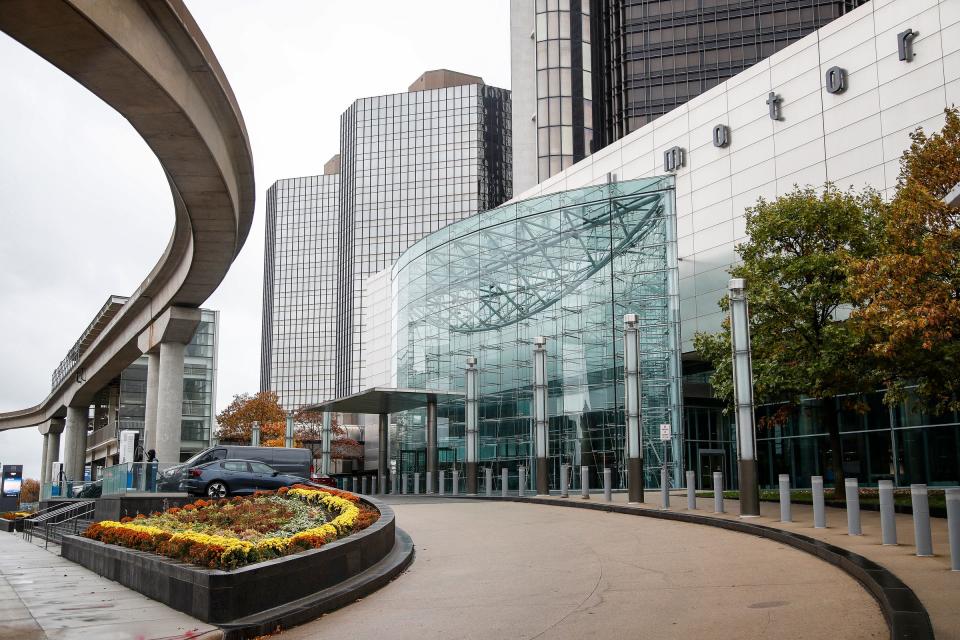
“Offices don’t make any sense,” Rossetti said. “But if that place was full of people living there, you’d have a hell of a community. You have retail to support it.”
As for the lack of enough existing plumbing to connect to future apartments, he said plumbing is not a huge obstacle and rather one of the easier things to put in because it runs vertically.
“The real issue is the skin, the fact that it’s single pane (glass) and that would be really expensive to replace," Rossetti said. "But if you look at it creatively, due to the size of the floor plates, you could do that effectively from inside out for less cost."
7 towers, 5.5 million square feet
The original Renaissance Center structure opened in 1977 and consists of four 39-story office towers surrounding a central 73-story hotel, now a Marriott. Two additional 21-story baby towers opened in 1981. Altogether, there is 5.5 million square feet of space.
The Renaissance Center was the brainchild of Henry Ford II, who saw the project as a way to revitalize Detroit following the 1967 uprising. The complex cost $337 million to build, according to Free Press archives, and GM paid $73 million for it in 1996.
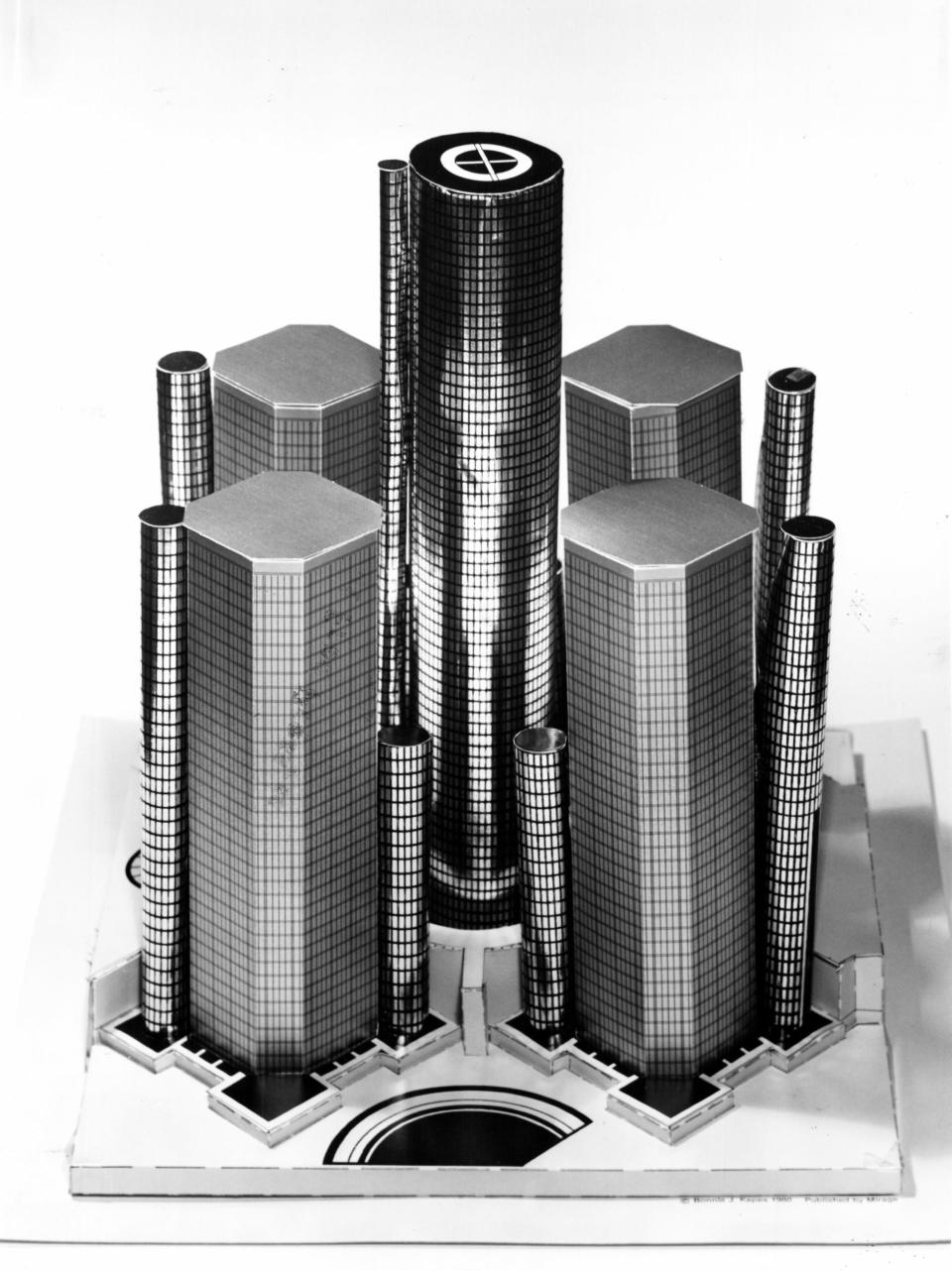
Ford Motor Co. still leased 500,000 square feet at the RenCen at the time of the GM sale. A Ford spokesperson last week said the automaker has no plans to return.
GM currently owns the original five towers. Two shorter towers east of the original towers belong to Farmington Hills-based Friedman Real Estate, which bought the pair last year from a New Jersey utility company. The firm's founder, David Friedman, is a longtime friend of Gilbert's.
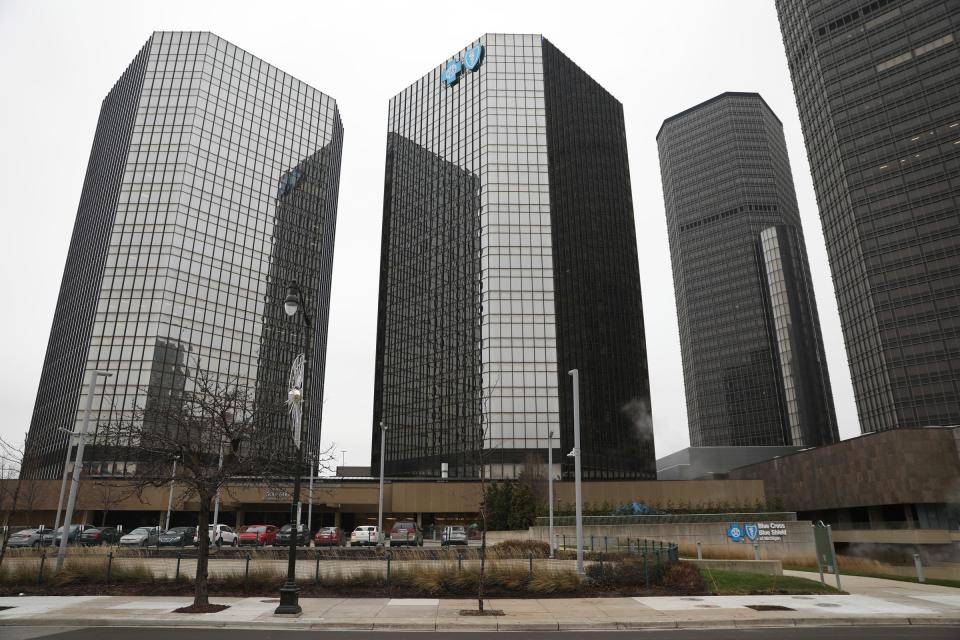
One key consideration for any future redevelopment plan: The RenCen still has occupants.
Even though weekday foot traffic in the RenCen appears way down compared with foot traffic before the COVID-19 pandemic, the complex isn't really a ghost town.
GM is a major occupant and its exit will be felt. But there are other office tenants in the four core office towers, including auto industry consultants and financial and public relations firms. And there are over a dozen restaurants, including Andiamo and Joe Muer Seafood — plus the 1,328-room Marriott hotel.
Of the smaller towers not owned by GM, one is filled by Blue Cross Blue Shield of Michigan and the other is mostly empty.
The RenCen's leasing agent, CBRE, declined to share current occupancy rates for the office towers. GM also declined to say how much space it currently takes up or the number of employees it has inside.
However, leasing data from the Costar service shows two of the original RenCen towers as 100% occupied, another as 52% full and the fourth about 82% full.
Not all GM details are known
Exactly who at GM will vacate the RenCen for the new digs on Woodward Avenue also remains unknown.
GM spokesman Kevin Kelly said, “We’re not providing specifics in terms of space utilization.”
GM’s captive finance arm, GM Financial, is based in Fort Worth, Texas. But its Detroit operations are housed in the RenCen, where about 230 of its employees work, said GM Financial spokesperson Lane Borrello. Borrello hinted that GM Financial may not be making the move to the Hudson's site with GM and might not even stay in the city.
“GM Financial continues to explore options for workspace in the metropolitan Detroit area,” Borrello told the Free Press. “No final decisions have been made to date.”
Similarly, GM subsidiary OnStar has its command center in the RenCen, and Kelly said it is too soon to say if that will also move.
Detroit has seen its share of decaying landmarks
The RenCen's current situation is different from that which has faced other Detroit landmark buildings in the past that outlived their original use and purposes. They were mostly or completely vacant by the time a would-be redeveloper stepped forward to try and save them.
That list includes the elegant David Whitney Building in downtown, once medical offices and now an upscale hotel, and the Book Tower, which also was offices until Gilbert's firm reopened it last year as downtown housing, a hotel and restaurants. There also is Michigan Central Station, an old train depot in Corktown that Ford Motor Co. bought, rehabbed and will reopen June 6 for a mix of uses.
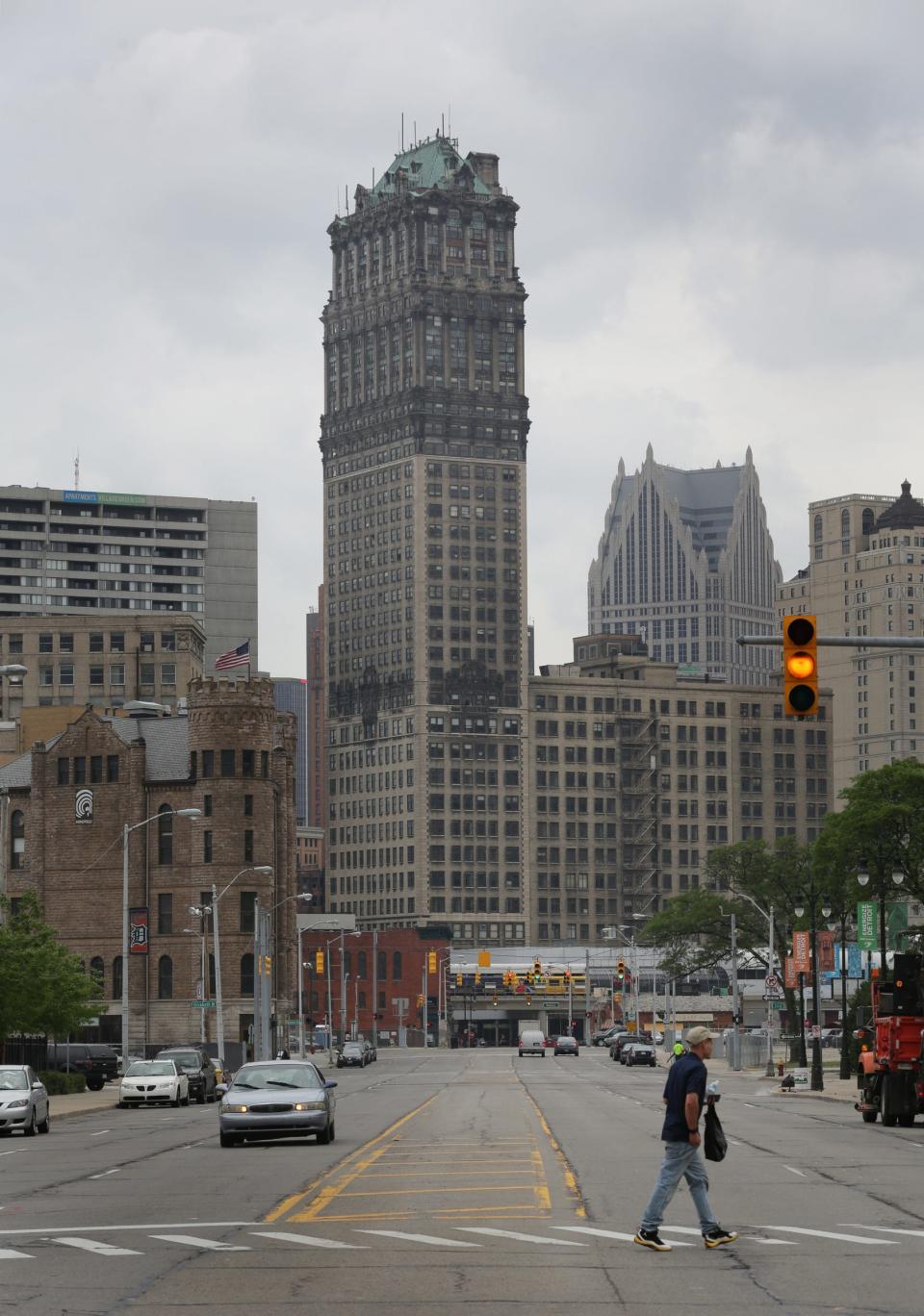
And there is the notorious Packard Plant on the east side, which after hanging on for years amid a failed rehab campaign by a foreign developer, recently met the wrecking ball.
“So it’s not like the sky is falling and we have to figure something out right away," Poris said of the RenCen's next chapter. "That’s a big thing right there to remember."
Still, the notion — however inaccurate — that the RenCen is destined for desolation as soon as GM moves out was inspiration last week for various Internet memes, including one imagining it as a future location for a Spirit Halloween seasonal pop-up store.
Too soon? pic.twitter.com/3pFw8O42Ph
— Dave Gifford (@DE_Gifford) April 15, 2024
With office demand down, others are converting to housing, hotels
In the big picture, the market for downtown Detroit office space is weaker now than before the pandemic. The office space vacancy rate was 19.4% in the first quarter, up from just under 13% in late 2019, according to reports from the Newmark real estate firm.
Levi Smith, an associate broker with P.A. Commercial, said that with current market conditions, it would be a challenge to fill up the RenCen's office towers once GM leaves. The RenCen can be a "tough site" for attracting tenants, he said, as it's a bit isolated and set off from the rest of downtown, and the center of gravity has been moving toward the popular and walkable area around Campus Martius that is near the Hudson's development.
"I think that’s why they (GM) are going to the Hudson building, to try and get their employees to come downtown and say, ‘You’re only a block away from Campus Martius, and that’s fun,' " Smith said.
Gilbert's Bedrock team has significant experience with redeveloping former office or commercial space into housing or hotels. Besides Book Tower, its other conversion projects include The Assembly, 1702 W. Fort St.; the 38-story David Stott tower, 1150 Griswold near Capitol Park, and the former Detroit Free Press building, 321 W. Lafayette, now known as The Press/321.
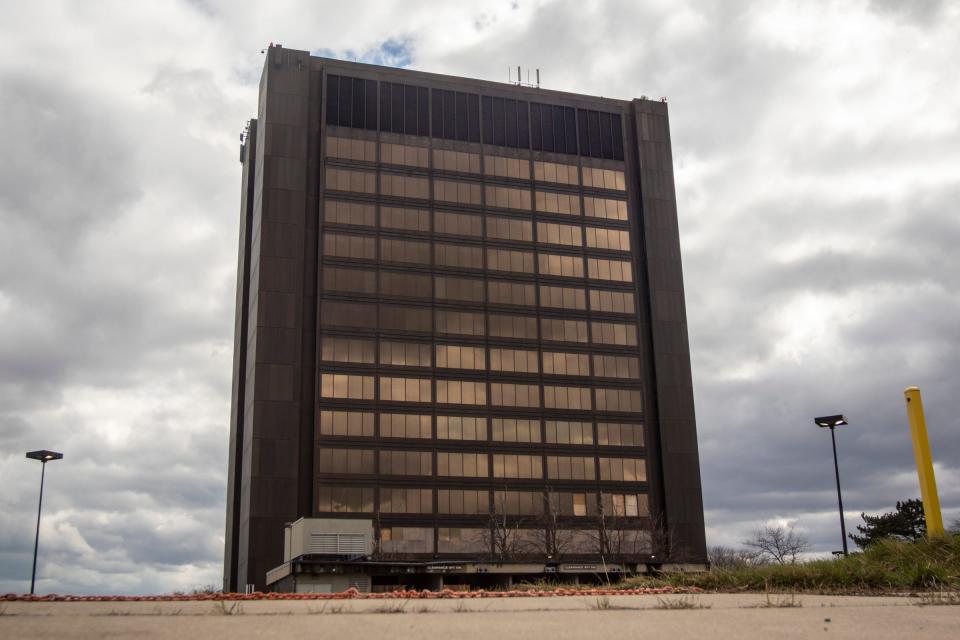
Developer Alex Begin, partner of Madison Heights-based Gordon-Begin Properties, is in the middle of converting the 14-story, Downriver Southgate Tower, a former bank headquarters, into 216 market-rate apartments. The project is going well, he said, and on pace for a mid-2025 completion. Crucially, the building's office floorplates were conducive to such a conversion.
"That’s one thing I’m not sure the RenCen has. But the floorplates of the Southgate Tower lent themselves quite easily to a residential conversion," he said.
"Now, we will have to redo all the systems — so new plumbing, new mechanical, new HVAC, new elevators, basically the whole building is going to be refreshed with new systems," Begin continued. "But the floors were not so gigantic that an apartment residence would not have much window space. They are actually going to get a lot of window space.”
The same architect who did the RenCen, John Portman, also designed a somewhat similar looking complex, the Westin Bonaventure in Los Angeles, which is four 33-story circular towers and operates as a hotel. However, all of those towers are cylinders — reminiscent of the RenCen's 73-story Marriott tower. The original RenCen office towers, in contrast, are octagonal shaped, which may be a bit trickier to convert to housing or hotel use — although some experts believe it could still be done.
Whatever redevelopment strategy emerges from the GM-Bedrock study, it will need a good business case for success.
“My big-picture view of the RenCen is it’s got to be financeable in the long run," Begin said. "Even if GM is doing something now to adapt it, the ultimate owner has to be able to finance it, so it’s gotta be full.
"So what’s going to fill it. Is it going to be apartments? Is it going to be a hotel? I doubt it’s going to be office. So they have to ask themselves that question. And you gotta know what else is in the market, so you don’t flood it with stuff we already have — and that’s going to take some real study and planning.”
The downtown area right now is still digesting a feast of new luxury rental apartments that recently hit the market, including nearly 500 units that opened early this year in a new 25-story glass building on the riverfront site of the former Joe Louis Arena.
And Gilbert's Bedrock needs to sell 97 luxury condos in the new 45-floor Hudson's site skyscraper that is under construction next door to the office building that will house GM's headquarters.
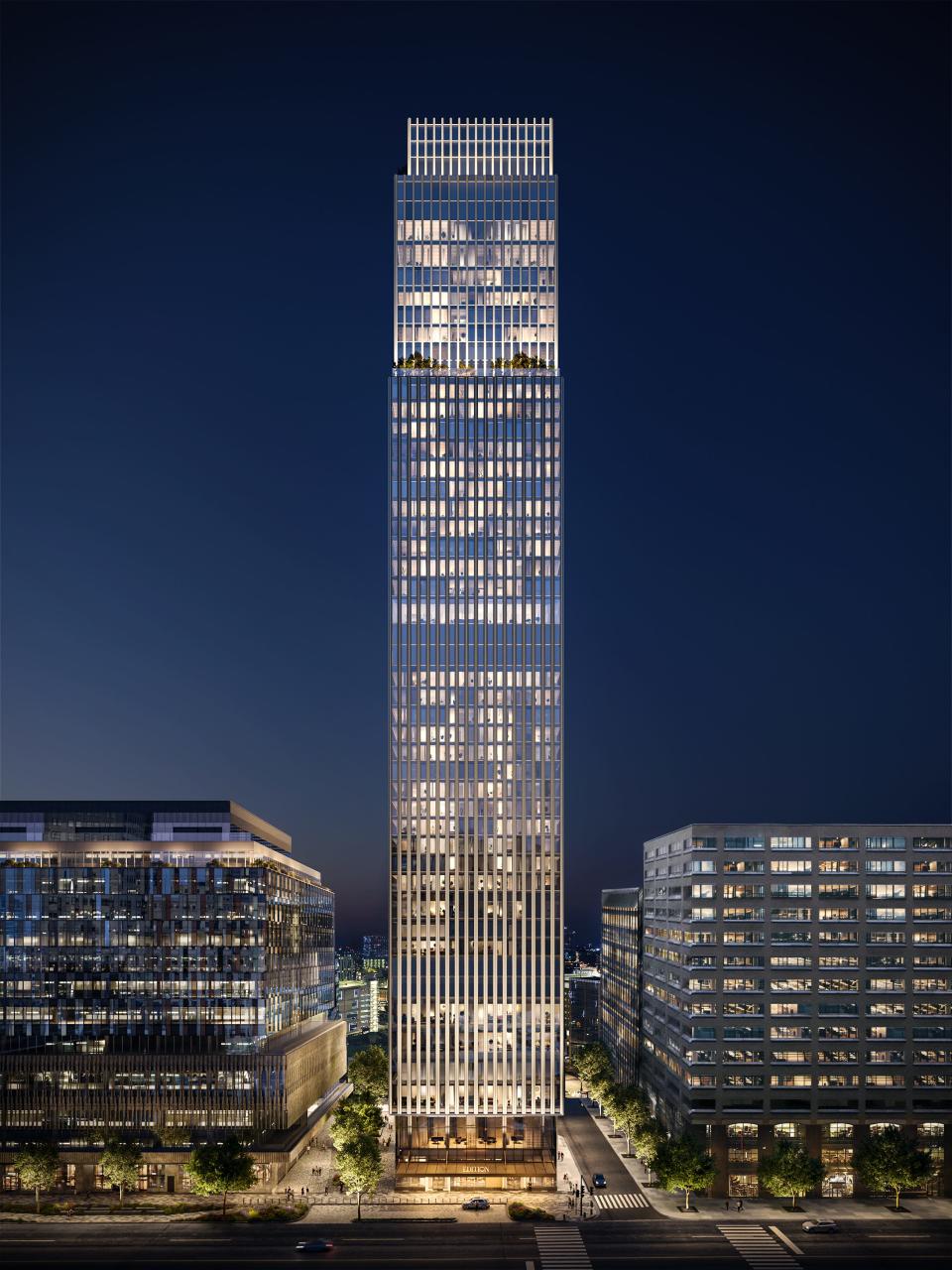
“The absorption rate in the next year will tell the tale," Jim Bieri, founder of Stokas Bieri Real Estate, said of downtown's residential market and the prospects for seeing housing in the RenCen. "If they’re able to absorb what’s coming online — especially the price of your market units on the water — that will encourage people to take a shot at it.”
Grossi, the Windsor architect, said he is optimistic for whatever redevelopment plans ultimately emerge because Gilbert's Bedrock is now involved. In addition to being the lead architect for the Southgate Tower conversion project, Grossi is director of the joint Visual Arts and Built Environment program at the University of Windsor and University of Detroit Mercy.
"If you have a firm like Bedrock working on it, they’ve got such a great pedigree and track record of making amazing things happen in the downtown," he said. "My instant gut reaction is there’s going to be something amazing that comes out of this, too.”
Contact JC Reindl: 313-378-5460 or jcreindl@freepress.com. Follow him on X @jcreindl.
This article originally appeared on Detroit Free Press: Detroit's RenCen after GM: What experts say the future could hold
